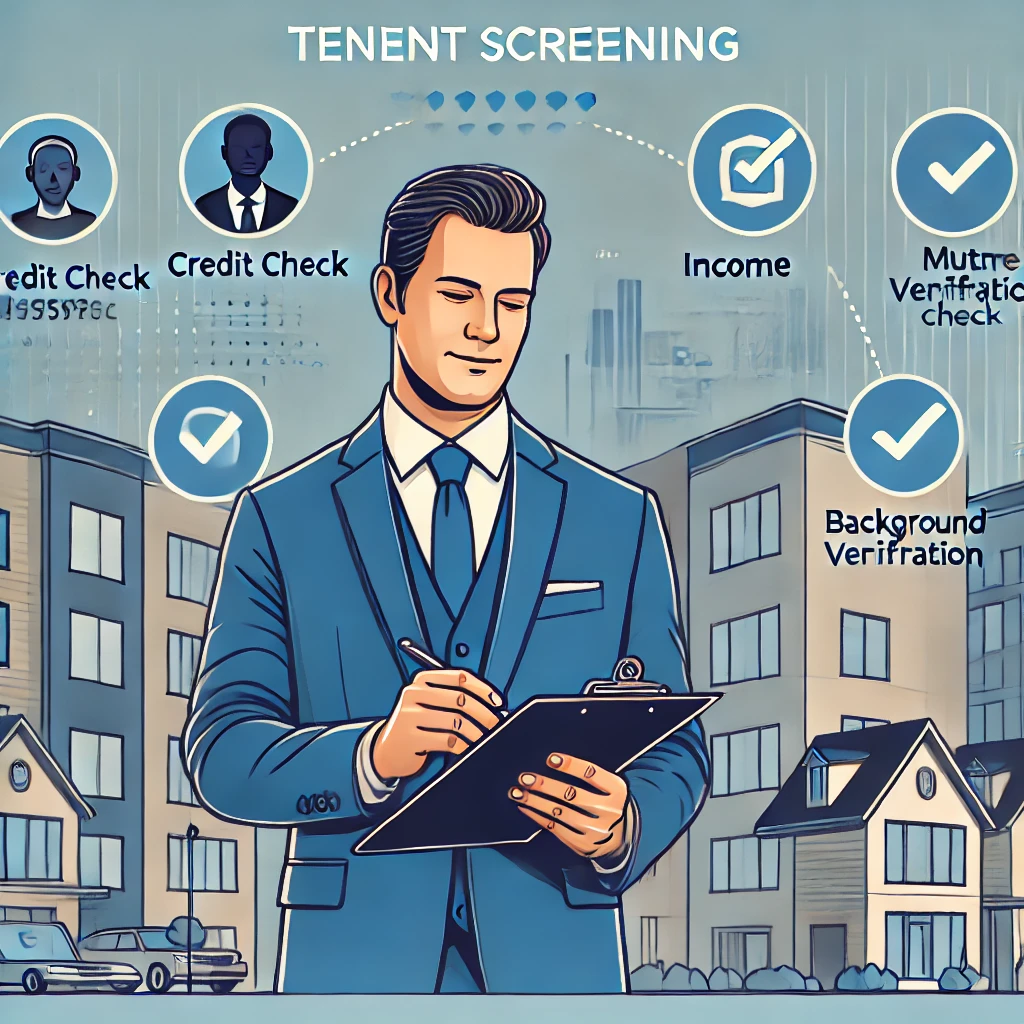
One of the most critical aspects of managing your rental property is selecting the right tenants. Tenant screening plays a pivotal role in safeguarding your investment and maintaining a harmonious landlord-tenant relationship.
Why is Tenant Screening important?
- Financial Security: A thorough screening process helps ensure that prospective tenants have a stable financial background, reducing the risk of late payments or defaults on rent.
- Property Protection: Screening applicants helps mitigate the risk of property damage and minimizes the likelihood of damaging behavior or lease violations.
- Legal Compliance: Adhering to fair housing laws and conducting consistent screening practices helps landlords avoid discrimination lawsuits and legal complications.
Key Components of Tenant Screening:
- Rental Application: Start by requiring all prospective tenants to complete a detailed rental application. This document typically includes personal information, employment history, rental history, and references. ALL APPLICANTS SHOULD ALWAYS HAVE TO COMPLETE THE SAME RENTAL APPLICATION!
- Credit Check: Obtain authorization from applicants to conduct a credit check. Reviewing their credit history provides insights into their financial responsibility, including existing debts, payment history, and any past evictions or bankruptcies. Even if their credit score meets the required minimum, money owed to landlords or utility companies is a red flag.
- Income Verification: Verify applicants’ income to ensure they have the financial means to afford the rent. We do this by reviewing pay stubs, employment verification letters, or tax returns to confirm their income level and stability. Typically, we require income equal to at least 3 times the rent.
- Criminal Background Check: Conduct a criminal background check to identify any past convictions that may pose a risk to the safety and well-being of other tenants or the property itself. You cannot deny an applicant for having any criminal background – HUD has guidelines to determine what can be used to disqualify a potential tenant.
Best Practices in Tenant Screening:
- Consistency: Establish standardized screening criteria and apply them consistently to all applicants to ensure fairness and compliance with fair housing laws.
- Timeliness: Process applications promptly to avoid losing qualified applicants to competing rental properties. Set clear expectations regarding the screening timeline to keep both parties informed.
- Communication: Maintain open and transparent communication with applicants throughout the screening process. Inform them of any requirements or documentation needed and address any concerns or questions they may have.
- Documentation: Keep detailed records of the screening process, including rental applications, screening reports, and communication with applicants. This documentation serves as a crucial reference in case of disputes or legal issues.
TeamWork Property Management has a proven system for evaluating applications to get the most desirable and highly qualified tenants possible.
